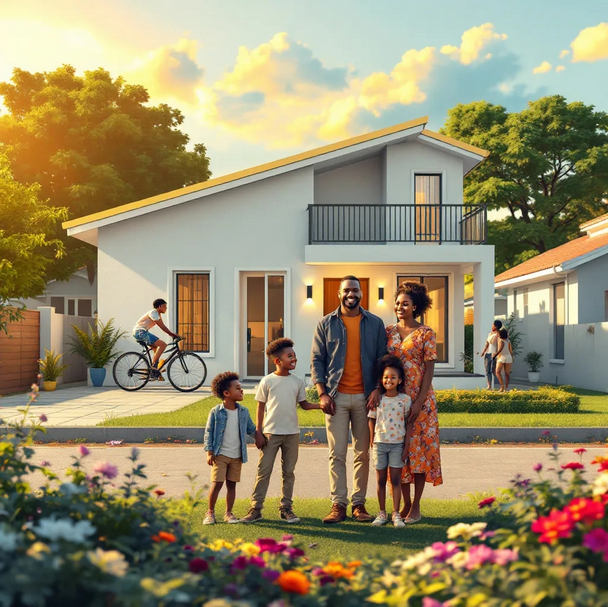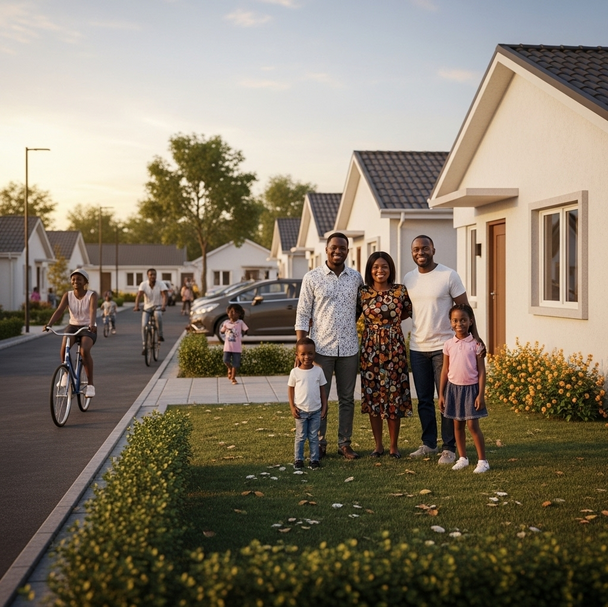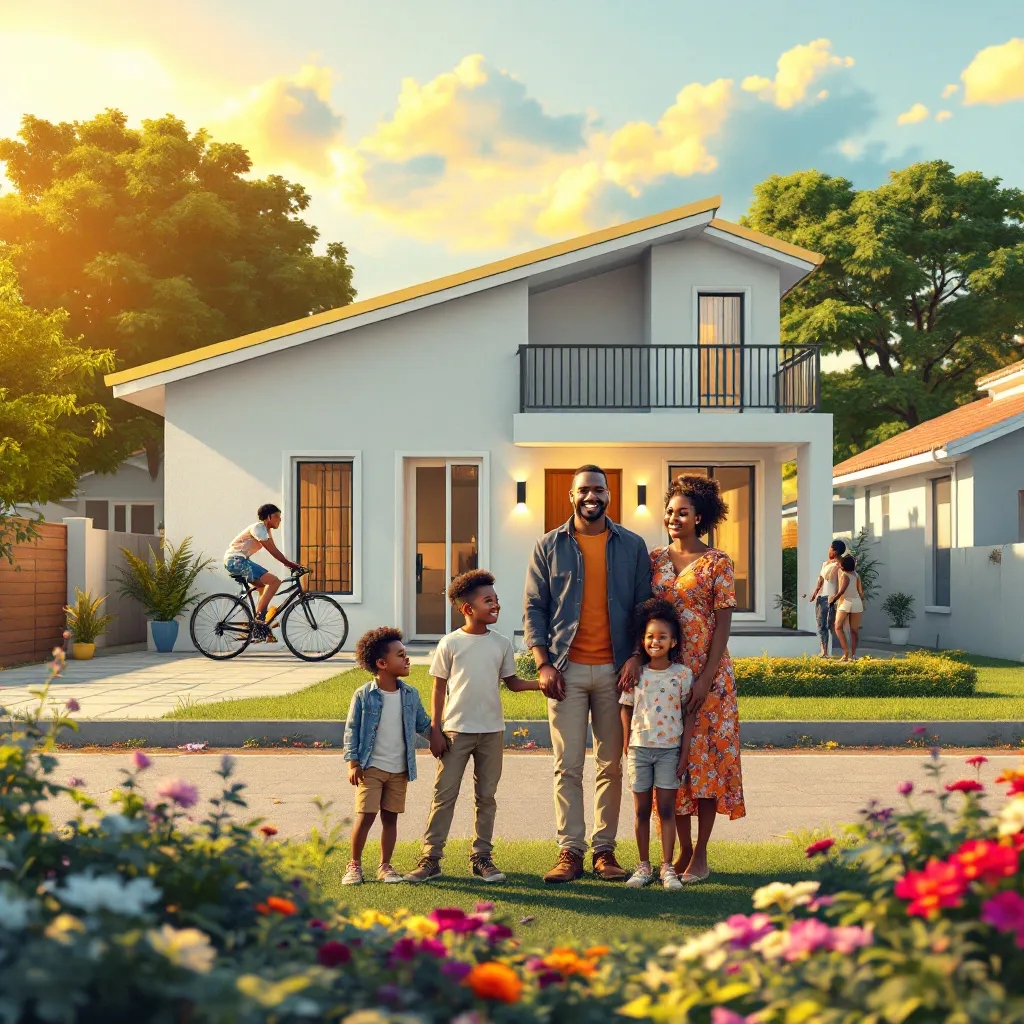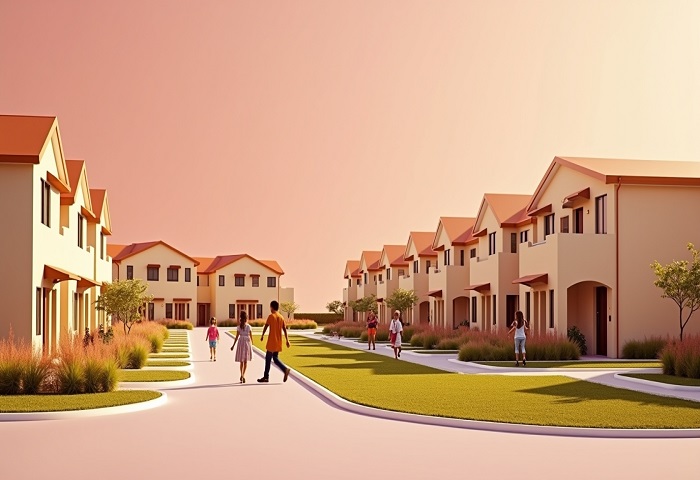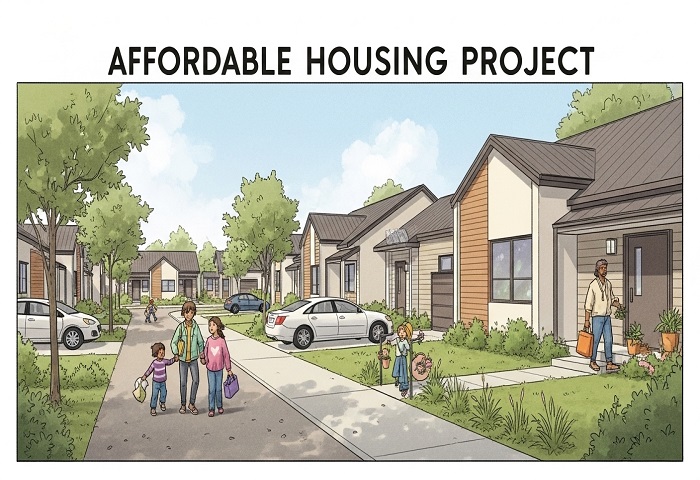
Ghana's Housing Revolution: Earthcore's 100,000 Units Affordable Housing Project
Overview
Earthcore Investments presents a groundbreaking opportunity in our 100,000 Units Affordable Housing Project—a scalable initiative delivering quality, affordable, and sustainable homes for low- and middle-income families across Ghana. Leveraging efficient construction techniques like modular building and eco-friendly materials, we maximize value while ensuring durability, comfort, and energy efficiency. This project not only addresses Ghana's pressing 1.8-2 million unit housing deficit but also unlocks economic growth through homeownership, reduced urban slums, and vibrant communities.
For investors, the appeal lies in resilient returns amid surging demand: Ghana's annual housing need exceeds 70,000-133,000 units, with real estate values projected to rise 10-12% in 2025. Expect diversified revenue from sales, rentals, and partnerships, with ESG alignment attracting ethical capital—similar African projects yield 8-12% ROI through green financing and incentives. Government support via initiatives like the National Housing Fund enhances stability, while job creation in construction and operations boosts local economies.
Earthcore Investments Limited, a Ghana-based firm established in 2007, is advancing its 100,000 Units Affordable Housing Project as part of a nationwide effort to provide quality, affordable, and sustainable housing for low- and middle-income families. This initiative employs efficient construction techniques.
The project's impact is multifaceted: it directly tackles Ghana's housing deficit, estimated at 1.8-2 million units according to sources like the Ghana Investment Promotion Centre (GIPC) and the Centre for Affordable Housing Finance Africa (CAHF). With an annual housing need ranging from 70,000 to 133,000 units, as reported by the World Bank, this deficit creates a substantial market gap. By alleviating this shortage, the project promotes homeownership opportunities, reduces reliance on substandard rentals, and fosters stable, thriving communities—potentially decreasing urban slums and enhancing social cohesion. Economic benefits include job creation during construction phases (skilled trades, engineering, and logistics) and ongoing roles in maintenance and management, mirroring broader real estate trends that stimulate local economies.
From an investor perspective, Ghana's affordable housing sector offers compelling opportunities driven by high demand and government incentives. The market is supported by initiatives like the National Housing Fund (NHF), which has delivered over 201 units in phases and aims to expand accessibility for ordinary Ghanaians. Real estate values are projected to appreciate by 10-12% in 2025, outpacing inflation, as per industry analyses. In mid-range and affordable segments, ROI potential is attractive, with African projects yielding 8-12% annually through innovative financing like green bonds and REITs. Investors can engage via equity stakes, joint ventures, or debt financing, benefiting from tax incentives in emerging hotspots beyond Accra. Risks such as construction delays are mitigated by efficient techniques and public-private partnerships, while ESG focus appeals to ethical investors seeking social returns alongside financial gains





